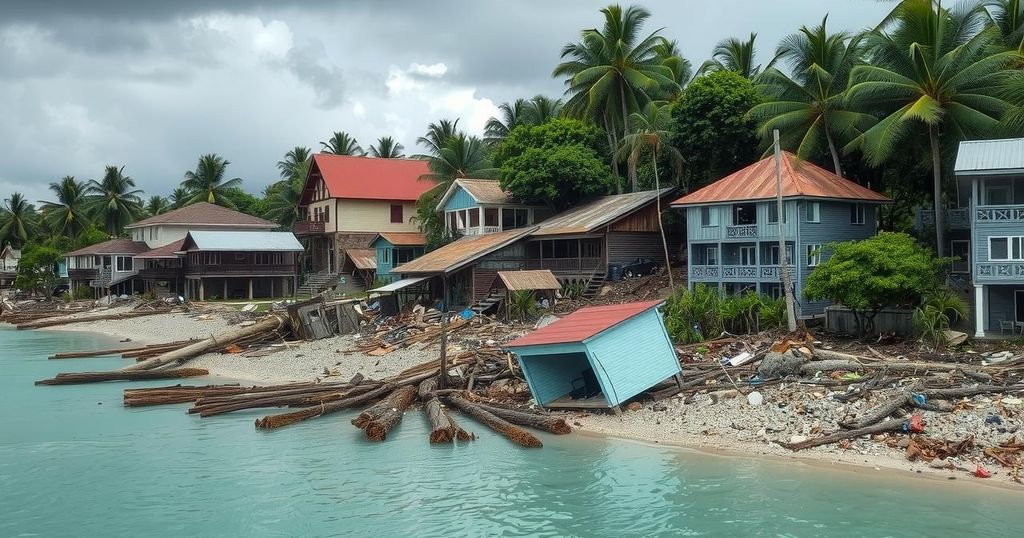World news
AFP, AFRICA, AP, BFMTV, BRUNO GARCIA, CAR, CHI, CIVIL SECURITY, CNN, CNN NEWSOURCE, EMERGENCY RESPONSE, EUROPE, FRANCE, GARCIA, GETTY, GETTY IMAGES, HOTEL CARIBOU, INDIAN OCEAN, KARIHANI, KWEZI, MADAGASCAR, MAMOUDZOU, MAYOTTE, MET, METEO - FRANCE, MOHAMED ISHMAEL, MOZAMBIQUE, NATURAL DISASTER, NATURAL DISASTERS, REUTERS, SEC, UIISC, VIOLENCE, WASHINGTON DC, WEATHER SERVICE
Aisha Khan
0 Comments
Devastation in Mayotte: Cyclone Chido Causes Widespread Destruction
Cyclone Chido has wreaked havoc on Mayotte, causing widespread destruction and a significant death toll, with local residents likening it to an atomic bomb. Official responses include military aid and rescue efforts, but many areas remain isolated and recovery is complicated by high numbers of undocumented migrants.
Mayotte, a French archipelago located in the Indian Ocean, has suffered catastrophic destruction following the landfall of Cyclone Chido, a category 4 storm that struck on December 15, 2024. Described by residents as resembling the aftermath of an atomic bomb, the cyclone produced winds exceeding 220 kilometers per hour (136 miles per hour), making it the most powerful storm to impact the territory in nearly a century. Reports indicate that extensive damage has occurred across the islands, particularly in informal settlements where many residents reside.
The cyclone obliterated entire neighborhoods and significantly disrupted essential services, including electricity, water, and communication networks. Local officials have confirmed at least 14 fatalities, but estimates suggest that the actual number of victims may be in the hundreds or even thousands. Conditions are particularly dire for the approximately 100,000 undocumented migrants living in Mayotte, exacerbated by heightened fears of police action against them.
In the immediate aftermath of the storm, rescue efforts are hampered by the level of destruction and isolation of affected areas. Many families have turned to social media in desperation, seeking news of missing loved ones and lamenting the prolonged absence of rescue services. As rebuilding efforts commence, the response from the French government has included deploying military aid and first responders to assist the beleaguered population.
Cyclone Chido stands as a grim reminder of the increasing frequency and intensity of tropical cyclones, influenced by climate change factors. Mayotte, an economically challenged territory of France, has a long history of vulnerability to natural disasters, with a complex social fabric comprising many undocumented migrants seeking better opportunities. The region’s geographic location makes it susceptible to such extreme weather events, with the cyclone season extending from mid-November to April each year. The intersection of environmental factors, migration issues, and economic challenges further complicates recovery efforts post-cyclone, leaving local governance strained.
In summary, Cyclone Chido’s devastating impact on Mayotte highlights the urgent need for effective disaster preparedness and response strategies, particularly in vulnerable communities. The compounded challenges of post-cyclone recovery, especially for the marginalized populations, necessitate a collaborative response from local authorities, international aid organizations, and the French government to ensure swift relief and long-term rebuilding efforts. The situation in Mayotte remains precarious as rescuers strive to address the immediate needs of those affected while grappling with the broader implications of climate change.
Original Source: www.accuweather.com




Post Comment